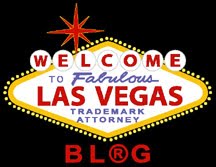After months of uncertainty regarding how the U.S. Patent and Trademark Office (“PTO”) was going to be handling trademark applications that recite cannabis-related goods and services following the enactment of the 2018 Farm Bill, the PTO issued Examination Guide 01-19 on May 2, 2018 to provide some guidance for trademark applicants and trademark attorneys moving forward.
Prior to the enactment of the 2018 Farm
Bill, the PTO typically refused registration of any trademark application the
basis that use of a mark in connection with anything relating to cannabis was a
violation of the federal Controlled Substances Act
(CSA), and therefore, the mark was not in lawful use in commerce (nor could the
applicant have had a bona-fide intent to use such mark in lawful commerce).
However, on December 20, 2018, 2018 Farm Bill was signed into law and amended
the CSA to remove hemp from the definition of marijuana, and thus cannabis plants and derivatives (most notably
CBD) that contain no more than 0.3% tetrahydrocannabinol
(THC) on a dry-weight basis are no longer controlled substances under the CSA.
For trademark applications filed on or after December
20, 2018 which identify
cannabis-related goods (including CBD), the 2018 Farm Bill now removes the CSA
as a ground for refusal of registration so long as the goods are derived from “hemp.” Nonetheless, the PTO will require the identification
of goods to specify that they contain less than 0.3% THC so that the goods set forth in the trademark application are
compliant with federal law.
However, for applications filed before December 20, 2018 that identify goods encompassing cannabis-related products or
CBD, registration will be refused due to the unlawful
use or lack of bona fide intent
to use in lawful
commerce under
the CSA on the date the
application was filed. The PTO maintains that such pre-Farm Bill applications
did not have a valid basis to support
registration at the time of filing because
the goods violated federal law at the time.
However, because the goods are now potentially
lawful if they are derived from “hemp” and contain less than 0.3% THC, the PTO
will be allowing applicants the option of amending the filing date and filing basis
of the application to overcome the CSA as a ground of refusal. Applicant’s will have to specifically state for
the record that such a change to the filing date is being authorized and must establish a valid filing
basis under 37 C.F.R.
§2.34 by satisfying the relevant
requirements. If the application was
originally filed based on Section 1(a) use-in-commerce, then applicants will
have to amend the basis to instead be based on Section 1(b) intent to use
– presumably followed by a subsequent filing of an amendment to allege use. [Comment – this is what the Examination
Guideline states regarding use-in-commerce ,
but I’ve personally reached out to the PTO regarding this point as it seems
that if the applicant is amending the filing date, but the applicant can claim
use-in-commerce as of that December 20, 2018 filing date, then why can’t the
applicant leave the application basis as Section
1(a) use-in-commerce based on the new filing date … to be continued.]
Applicants will also be required to amend the identification
of goods to specify that the CBD or cannabis products contain
less than 0.3% THC. The PTO also appears to be recommending that in lieu of amending
the filing basis, applicants could simply abandon its old application and file
a new one.
However, even though cannabis-related goods may
now be legal under the CSA, the PTO notes that not all goods for CBD or hemp-derived
products are lawful following the 2018 Farm Bill. Most notably, the use of CBD in
foods or dietary supplements may still violate the Federal Food Drug and Cosmetic
Act on the basis that the use of a drug or substance
undergoing clinical investigations (as CBD currently is since it is an active ingredient in FDA-approved drugs and is a substance undergoing clinical investigations)
without approval of the U.S. Food and Drug Administration (FDA)
violates the FDCA. The 2018 Farm Bill explicitly preserved FDA’s authority to regulate products
containing cannabis or cannabis-derived compounds under the FDCA. Thus,
registration of trademarks for foods,
beverages, dietary supplements, or pet treats containing CBD will still be refused
as unlawful under the FDCA, even if derived from hemp, as such goods
may not be introduced lawfully into interstate commerce.














